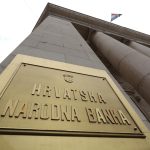How will the relationship be between the new government and the Croatian National Bank?
The new distribution of power and influence in Croatia after the elections has involved its central bank as well. SDP president and outgoing Prime Minister Zoran Milanović has revealed that the post of Croatian National Bank (HNB) governor was a subject during postelection political negotiations. He claims that, in addition to various ministerial posts and managerial positions in important state companies, MOST had requested that it should control the post of HNB governor. Similar information appeared last week after MOST and HDZ agreed to form a new government, reports Vecernji List on December 27, 2015.
Milanović reportedly told leaders of MOST that HNB already has a governor, but he did allow for possible talks about the issue once the current governor’s term expires in July 2018. Sources from MOST said last week that HDZ president Tomislav Karamarko gave a similar answer. It is to be hoped that this will remain nothing more than just a sad element in a story about postelection horse-trading which has obviously included an institution which should remain outside the political influence. By law, it is almost impossible to replace a HNB governor during his term, which is designed to protect the independence of the central bank.
“Monetary policy can be criticized, and I often do it myself, but the position of governor should not be subject to any political influence. The governor and the central bank have legally guaranteed independence. Governor’s term is set to six years precisely so he or she would not be subject to political interference”, says Marijana Ivanov, a professor at the Department of Monetary Policy of the Faculty of Economics, where one of her colleagues is MOST’s economic strategist Ivan Lovrinović, who surely sees himself as future governor.
“History has shown that, when central banks are not independent, the result are various monetary problems which have been linked precisely with the attempts of the executive branch to use monetary policy to achieve its political and social objectives”, says Ivanov. The Croatian National Bank reacted with a statement explaining that “under the Constitution, HNB is an autonomous, independent institution which reports to the Parliament about its activities”.
“Our legal framework is in full compliance with the legal standards of the European Union, especially in the part related to the degree of central bank independence, with the objective of smooth functioning of HNB within the European System of Central Banks”, says the Croatian National Bank in a statement. Governor Boris Vujčić argues that susceptibility to political influence and political interests in deciding monetary policy has proven to be very dangerous for national economies.
Former Finance Minister Slavko Linić points out that it is wrong to talk about something that is in conflict with national laws, as well as the obligations of Croatia as a member of the EU. “A different monetary policy would not be accepted by the European Commission, the European Central Bank or the IMF. As a major debtor, Croatia is dependent on the ratings of these institutions, we are part of a common market and a common monetary system and therefore such talk is meaningless. The main problem of Croatia is not its monetary but its fiscal policy”, Linić says.










